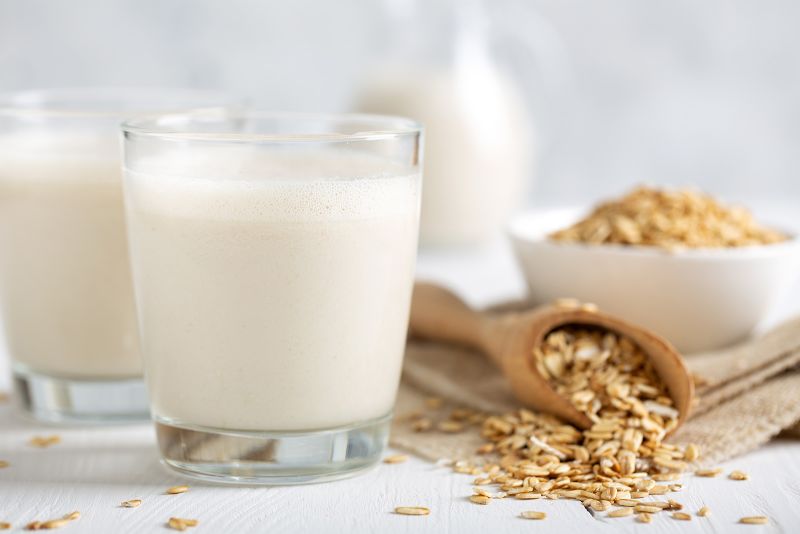Most individuals acknowledge {that a} nutritious weight loss plan promotes a wholesome life, however navigating the big selection of choices at your grocery retailer isn’t at all times simple—particularly when so many meals are marketed as wholesome (however aren’t).
A rising variety of latest research have raised well being considerations a couple of sure kind of meals that almost all People eat: ultra-processed meals. One such examine, printed in November 2022 within the American Journal of Preventive Drugs, concluded that these meals possible contributed to about 10% of deaths amongst folks 30 to 69 years previous in Brazil in 2019. Different research—together with one printed in Neurology in July 2022 discovering {that a} 10% enhance in ultra-processed meals consumption raises the danger of dementia—have linked the meals class to extreme well being outcomes.
Not like minimally processed meals or unprocessed meals—like eggs, for instance, which journey from the farm to your kitchen wanting just about the identical—ultra-processed meals have been radically modified by producers. By the point they hit your grocery shelf, they’ve possible been heated, pressed, and enhanced by components designed to make them last more, style higher, and seem extra enticing, typically to the detriment of your well being. Right here’s what it is advisable learn about ultra-processed meals.
Extra from TIME
What are ultra-processed meals?
Extremely-processed meals are “made principally or totally from substances derived from meals and components,” write the authors of a 2017 commentary printed within the journal Public Well being Vitamin. These components are substances not normally utilized in dwelling cooking, like preservatives, dyes, and non-sugar sweeteners.
This definition covers a variety of meals in your native grocery retailer—from instantaneous soup to packaged snacks to sure meat merchandise, together with sausages, burgers, and sizzling canines. Such meals are inclined to have telltale indicators, says Tim Spector, a professor in genetic epidemiology at King’s School London and writer of Meals for Life: The New Science of Consuming Properly. Usually, he says, they’ve a really lengthy shelf life and 10 or extra substances, which regularly embrace “merchandise that you simply wouldn’t discover in your kitchen or you possibly can’t perceive.”
They’re distinct from how some diet researchers outline processed or minimally processed meals. These meals are inclined to include simply two or three substances— normally a complete meals plus salt, oil, or sugar—and have typically been preserved, cooked, or fermented. A few of these meals embrace canned fish, fruit in syrup, cheese, and recent bread.
However not all ultra-processed meals are equally unhealthy. Fang Fang Zhang, chair of the division of diet epidemiology and information science at Tufts College, notes that complete grain, ultra-processed meals—like some packaged breads—are an essential supply of fiber for many individuals. “Even with ultra-processed meals…complete grains are a more sensible choice than refined grain,” says Zhang.
Researchers at Northeastern College have additionally created a instrument for evaluating packaged meals in the identical class so as to select the one with the least quantity of processing. As an illustration, within the yogurt class, one plain natural yogurt scored a 4/100 (a positive rating indicating a low quantity of processing), whereas Oui Petite by Yoplait obtained a maximally processed rating of 100.
Why are ultra-processed meals so dangerous?
Longitudinal research within the Americas and Europe have linked consuming extra ultra-processed meals to various well being dangers, together with will increase in weight problems, hypertension, Sort 2 diabetes, and even dementia. Different analysis, together with a pair of research within the BMJ by researchers in Spain and France, has linked consuming ultra-processed meals to an elevated danger of early demise.
Extremely-processed meals are typically junk meals: low in fiber and excessive in sugar and energy, says Zhang. However as a result of ultra-processed meals are outlined by the sorts of substances they include, not by their diet content material, this class also can embrace meals with helpful vitamins, like breads excessive in fiber.
Scientists who analysis ultra-processed meals say that there appears to be one thing concerning the processing itself—not simply the diet content material—that makes them unhealthy. In a single 2019 examine that helps this concept, researchers cut up 20 folks into two teams and managed what they ate for 2 weeks. Every group ate meals with equivalent portions of energy, sugar, fats, fiber, and micronutrients, however one group ate a weight loss plan of ultra-processed meals, whereas the opposite ate unprocessed meals. In the long run, the individuals who ate ultra-processed meals gained weight, whereas those that ate unprocessed meals misplaced weight.
Researchers have raised a number of theories to elucidate this. One, says Eduardo A.F. Nilson, a researcher on the Middle for Epidemiological Analysis in Vitamin and Public Well being on the College of São Paulo who co-authored the Brazilian examine, is that consuming ultra-processed meals adjustments the way in which folks eat general: changing home made meals with ready-to-eat, energy-dense meals which are simpler to overeat. “They’re made, by design, for overconsumption,” says Nilson. “They’ve hyper-palatability. We are saying they’ve ‘hyper-flavors’—they are going to be very candy, very salty…and since they’re able to eat, they may change conventional diets.”
One other thought, says Spector, is that ultra-processed meals spurs folks to eat too shortly. Spector and different scientists are additionally investigating whether or not the issues begin after ultra-processed meals reaches your intestine. Spector says that in his analysis, he’s discovered that among the chemical compounds in ultra-processed meals—particularly emulsifiers, that are added to meals to assist combine substances—disrupt intestine microbes, which scientists theorize ship alerts to the mind while you’ve had sufficient to eat. “Both it sends alerts to the mind or to the intestine microbes to eat extra, or it’s merely that the meals is really easy to eat that it will get into the system so quick that you simply don’t have time to get your fullness alerts within the mind,” says Spector.
Not everybody agrees that each one ultra-processed meals are harmful
Critics, together with Gibney, argue that the ultra-processed meals class is simply too broad to be helpful as a scientific idea. In Gibney’s view, the class of ultra-processed meals incorporates too many alternative sorts of meals, and villainizes too massive a spread of substances—together with meals components, like preservatives, that public-health authorities have deemed to be protected. He argues that these issues undermine diet analysis, as a result of it’s troublesome to standardize which meals are included in research.
One other drawback, says Gibney, is that the idea of ultra-processed meals reductions the significance of reformulating meals, resembling by making it complete grain or decrease in sugar, which he says has helped to make processed meals more healthy. For many individuals, he provides, eliminating processed meals simply isn’t practical, because it makes up an excessive amount of of their weight loss plan, they usually don’t have the time or cash to prepare dinner each meal. “Extremely-processed meals as an idea is offering a easy, fashionable reply to what’s a really advanced query,” says Gibney.
How do I reduce on ultra-processed meals?
Consultants agree that lowering consumption of ultra-processed meals shouldn’t be the general public’s duty alone. Many individuals don’t stay in communities with entry to wholesome, minimally processed meals, which tends to be dearer than ultra-processed meals, says Nilson. To cut back ultra-processed meals, Nilson argues that the federal government might want to implement insurance policies to broaden entry to wholesome meals, resembling by limiting the provision of ultra-processed meals in colleges.
One other essential coverage, says Nilson, is for the federal government to warn the general public concerning the risks of ultra-processed meals and to implement clear labeling. Some international locations have already began to warn the general public about ultra-processed meals. In 2022, as an example, Canada introduced new labeling necessities for pre-packaged meals, together with labels when such merchandise are excessive in sodium, sugars, or saturated fats, and Well being Canada integrated warnings about extremely processed meals into its on-line wholesome meals selections information.
If you wish to make your personal weight loss plan more healthy, Spector says a mindset change is essential. “We simply have to get folks fascinated about meals not in a calorie approach, and take into consideration the standard,” he says. If you wish to cut back the variety of ultra-processed meals you eat, Spector suggests choosing different meals which are low-cost and don’t take a lot preparation, like beans, lentils, and eggs. For snacks, he suggests nuts, seeds, and complete fruit. “Strive going off [ultra-processed food] for per week,” he says, “and see what occurs.”
Contact us at letters@time.com.



